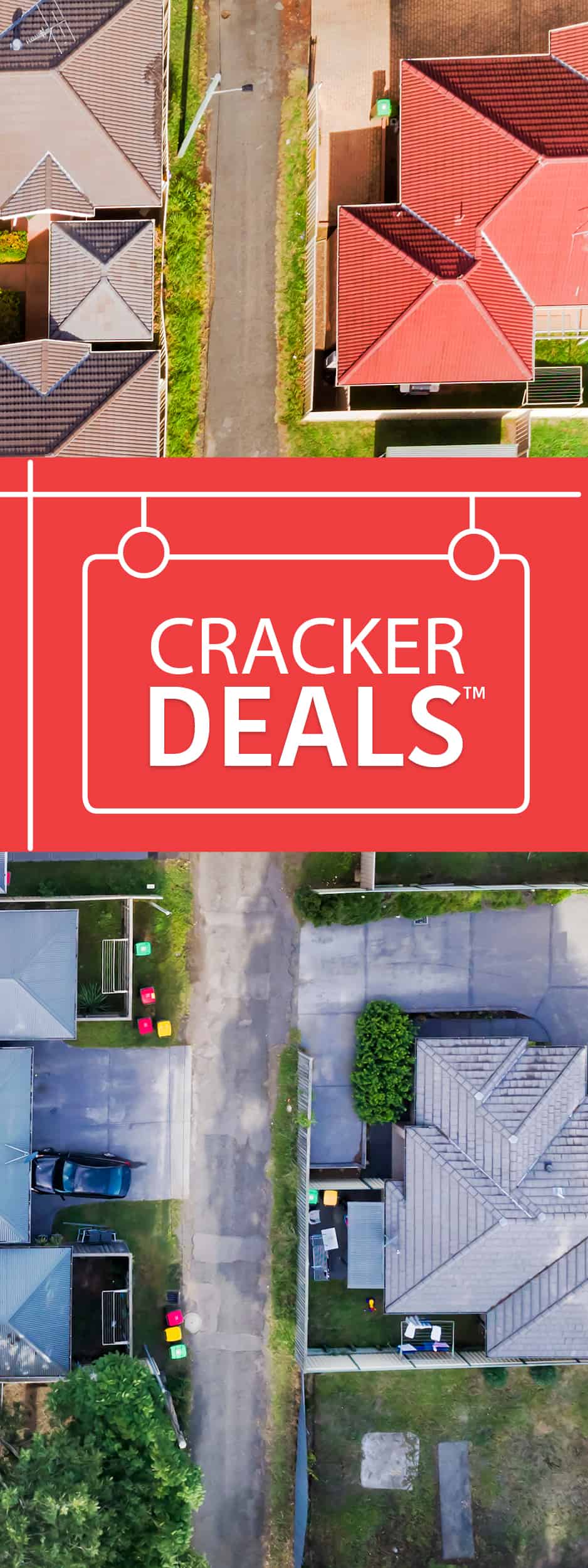- The first step is making the call.
- 1300 022 482
- hello@searchpartyproperty.com.au
How to Save a Deposit for an Investment Property

One of the biggest barriers you will face when trying to buy a property is getting the deposit together. This is particularly true for investors, who are often already paying off the mortgage on their own home. In fact, studies show that many property buyers spend well over a year saving up enough to get into the market.
The good news is, there are a few simple things you can do to speed up this process. There are also a couple of different approaches to successfully saving up to buy and investment property. Here we explore these and share our tips for getting into the market sooner.
How much do I need for a deposit?
The amount you manage to save will impact the size of the mortgage you can take out. This, in turn, will impact the total amount you have to spend on an investment property. As such, the exact amount you need will really depend on the budget you would like for your property search.
There are a few different ways to work this out – you can base your budget on:
- The type and location of investment property you want: You may be committed to buying a specific style of property or in a certain location. In this instance, you would set your budget based on recent comparable sales of suitable investment grade properties.
- Your borrowing power: Regardless of how much you have saved, there will be a limit on how much you can borrow. This will be based on your credit rating and regular income and can help you determine your upper budget limit.
- The amount you can save in a set period: To keep your portfolio growing, you may wish to set yourself a timeline for each new purchase. In this instance, you would set your budget based on the deposit you can get together between investments.
Whichever way you choose, you will need to save a certain percentage of your total investment budget. Exactly what this is will vary between mortgage providers, but most will require a deposit of at least 10%. For example, if you intend to buy a property worth $500,000, you will need a deposit of $50,000 or more.
That being said, to help keep costs down, many investors choose to use a deposit of at least 20%. If you have less than this amount, most mortgage providers will require you to take out mortgage insurance. This helps minimise their financial risk, covering them in the event that you default on your repayments.
A larger deposit also means a smaller mortgage amount and, but extension, smaller mortgage payments. As such, while it does mean putting up more money upfront, it should increase the net rental income you receive. It should also reduce the amount of interest and fees you will need to pay.
As such, waiting until you have built a larger deposit could pay dividends in the long run. Alternatively, you could adjust your budget so that your savings represents a larger deposit amount. Either way, you should consider if such an approach suits your financial situation, investment strategy, and general risk appetite.
The 3 main saving approaches
When saving to buy an investment property, most people take one of three standard approaches. Specifically, they usually choose to:
- Be patient and make steady savings: Traditionally, property investors have slowly built up their deposit by squirreling away a portion of their regular income. This is the safest and most stable approach but will generally take the longest amount of time.
- Enter into a partnership: Some investors believe there is strength in numbers and use a joint venture setup to get into the market sooner. This generally meansfinding someone (often a friend or family member) to guarantee the mortgage or provide the deposit.
- Make more money: Increasingly, investors are choosing to take on a second job or start a side hustle to speed up their savings. While this does mean more work in the short-term, it can deliver significant long-term benefits.
Each of these approaches has its strengths and weaknesses and will be more suited to different types of investors. Depending on your situation, you may also be able to combine these approaches to further speed up your progress. To help you work out which route is right for you, let’s take a deeper look at each approach.
Building a deposit over time
This is the most common approach to saving for an investment property. It may not be the most exciting option, but it delivers reliable results and helps create responsible financial behaviours. It is also the easiest and most widely accessible option, as it essentially only really requires a regular income.
The key to making long-term savings is an ambitious, but achievable, budget. This should take into account your ongoing expenses (accommodation, food, healthcare, etc.) and include a set amount of regular savings.To make it easier to stick to, a realistic budget will also allow room for an occasional “treat”.
While this approach will require patience, there are a few simple things you can do to speed up the process:
- Make savings your priority: When divvying up your paycheque, make your regular savings the first thing you pay. This will help make sure that the money is actually set aside and not siphoned off for other expenses. To make this even easier, set up an automatic transfer to a dedicated savings account, preferably with a different financial institution.
- Consolidate your existing debts: If you have multiple debts, combining them into one single debt will reduce the amount you are paying in fees. Many banks also offer low-rate debt consolidation loans, meaning you will also pay less in interest. And the money you save can be added to your regular saving amount to help grow your deposit quicker.
- Make small sacrifices: Little lifestyle changes can have a big impact over the longer term. For example, forgoing that $4 coffee each weekday morning will save you $20 a week and around $1,000 a year. As such, simply cutting back on a few of your indulgences could help boost your savings significantly.
Creating a joint venture
There is nothing to say you have togo on your property investment journey alone. In fact, many of the most successful property experts prefer to work in partnerships or as part of a consortium. In addition to increasing your available capital and borrowing potential, this gives you someone to workshop ideas and opportunities with.
Most often, joint ventures are created among friends and family members who share similar property ambitions. While there are many different ways to structure them, it is common for one person to lead the decision making. Generally, this person will be financially backed by a partner who either provides the deposit or guarantees the mortgage.
To minimise the risk of future issues, it is critical that any joint venture arrangements or agreements are properly documented. If this is an option you are considering, we strongly recommend getting independent legal advice and setting up formal contracts.
Boosting your income
Thanks to the rise of the gig economy, it has never been easier to set up a side hustle. You could moonlight as a rideshare driver, spend evenings and weekends working as a freelancer, or start a side business. Whatever your specialist skills and experience are, there is likely to be a way to leverage them to create extra income.
While “working two jobs” may not be sustainable long-term, it could be a great short-term solution. However, to get the most from your hard work, you need to make sure all extra income is put straight into savings. It also helps to find an income-producing activity that you enjoy doing and are happy to commit extra time to.
For more advice on property investing, contact us for a discussion.




